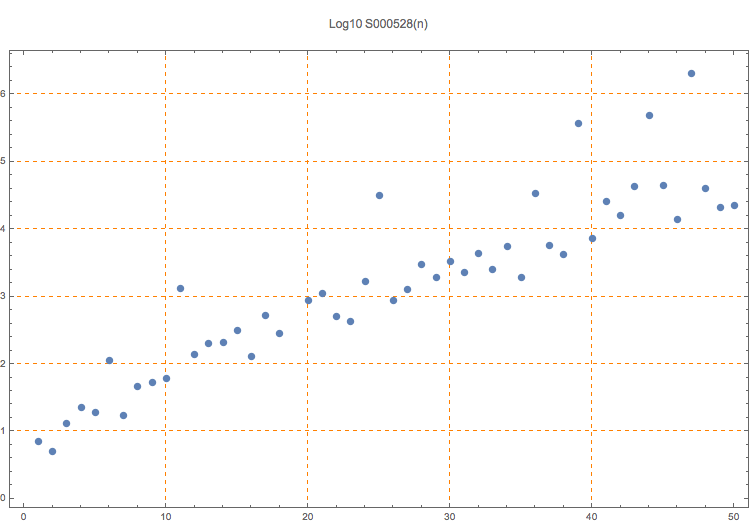Conjectured maximum prime p such that n = ceiling(p^(1 + 1/k)) - nextprime(p), or 0 if none such.
7, 5, 13, 23, 19, 113, 17, 47, 53, 61, 1327, 139, 199, 211, 317, 131, 523, 283, 0, 887, 1129, 509, 421, 1669, 31397, 863, 1259, 2971, 1951, 3271, 2311, 4297, 2557, 5591, 1933, 34061, 5749, 4177, 370261, 7253, 25471, 16141, 43331, 492113, 44293, 14107, 2010733, 40639, 20809, 22573
1
This was computed using the first 10^8 primes; that is, primes up to 2038074743. Is there something special about these primes?
T. D. Noe, Plot of 50 terms
Alexei Kourbatov, Verification of the Firoozbakht conjecture for primes up to four quintillion, arVix 1503.01744 (Mar 05 2015)
Wikipedia, Firoozbakht's conjecture
(Mma) nn = 50; t2 = Table[0, {nn}]; Do[s = Ceiling[p^(1 + 1/PrimePi[p])] - NextPrime[p]; If[s <= nn, t2[[s]] = p], {p, Prime[Range[10^6]]}]; t2
nonn
T. D. Noe, Mar 07 2015
